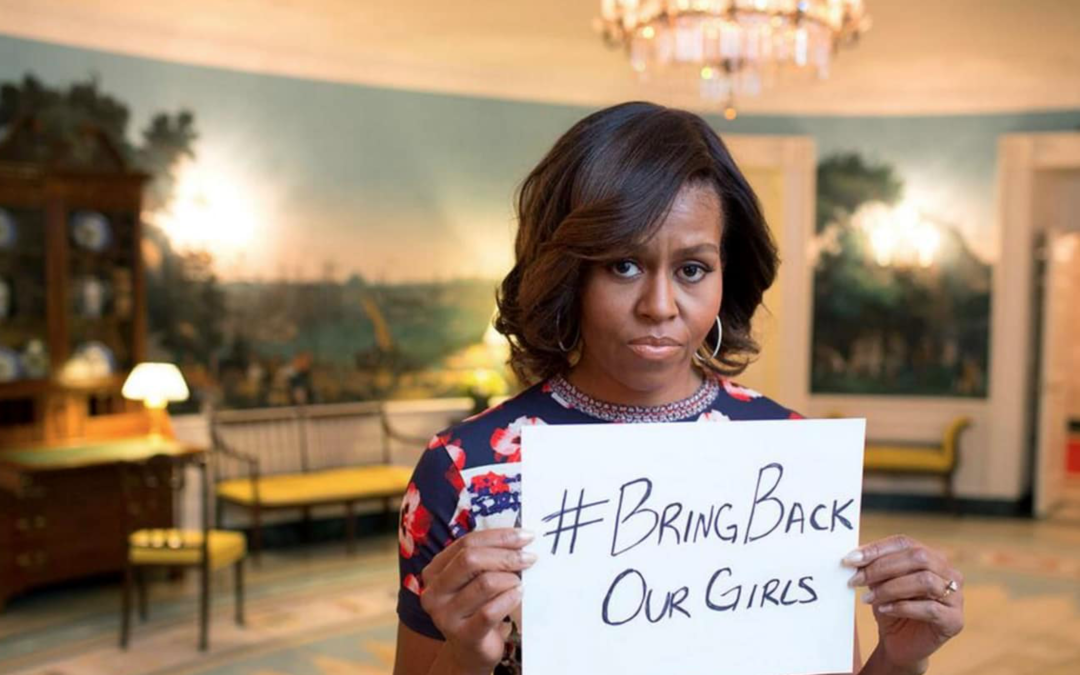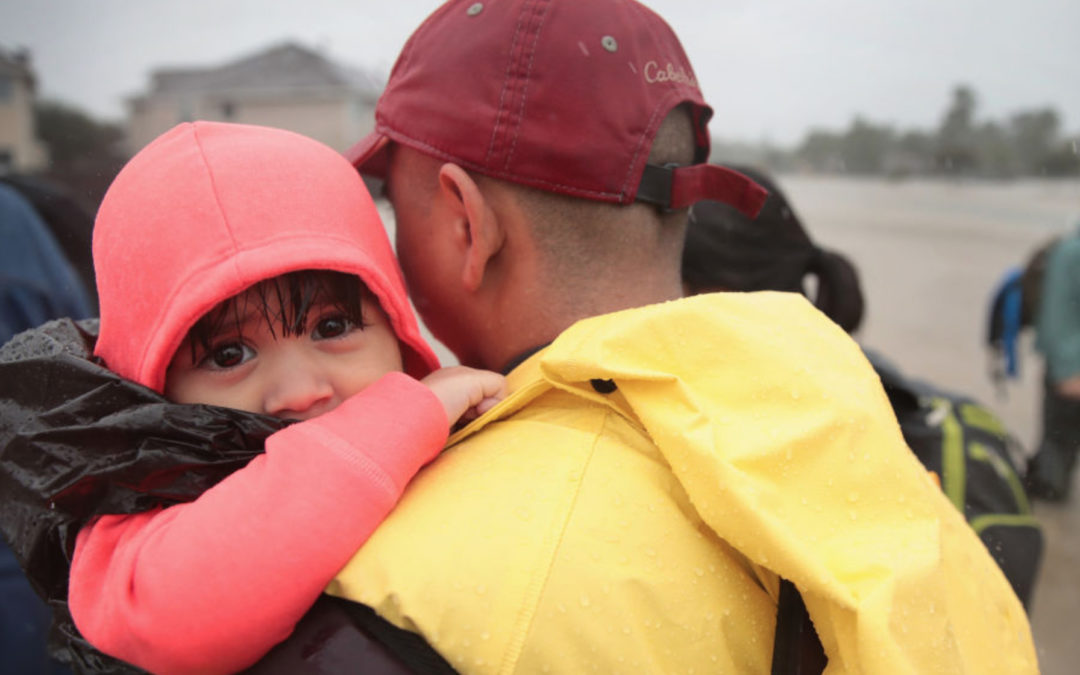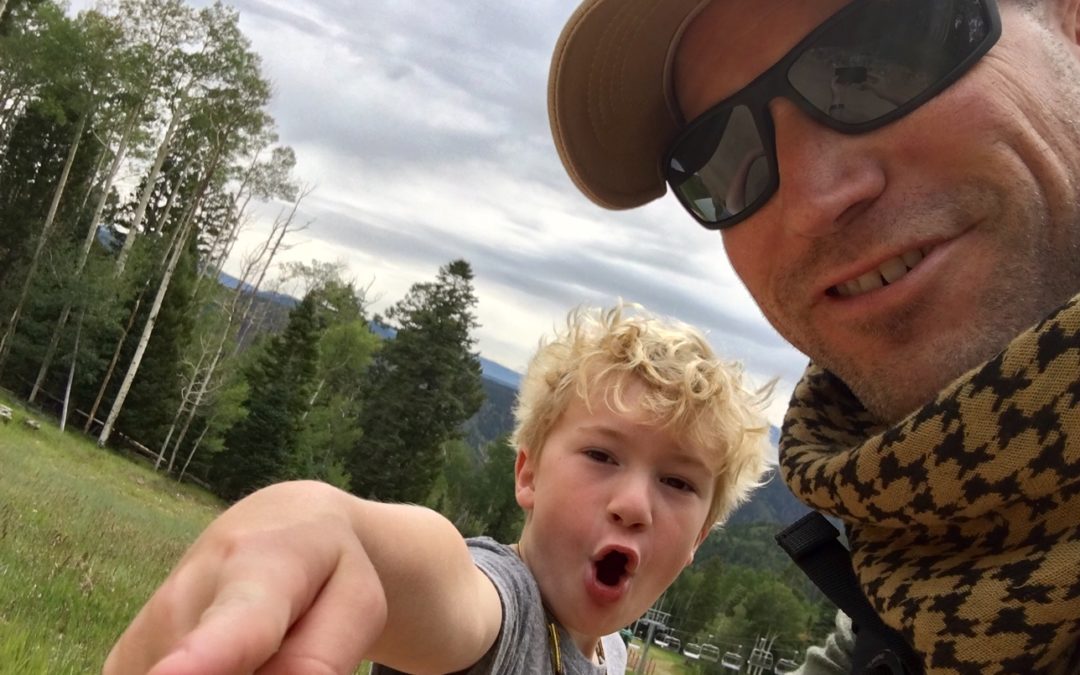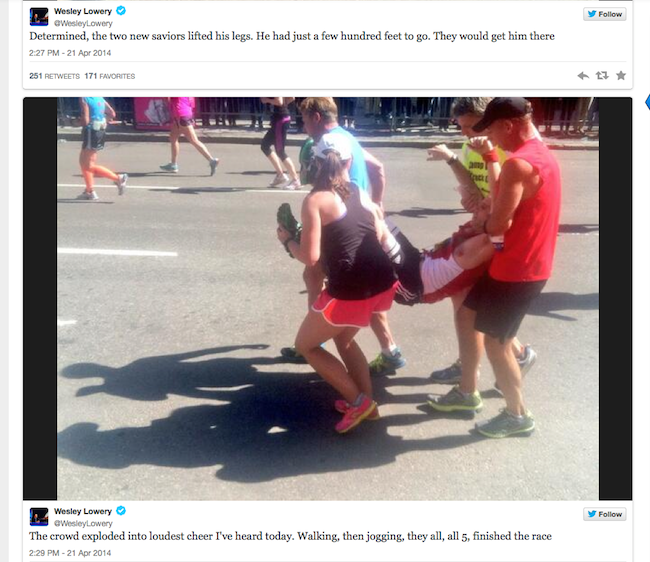
by Lance Cashion | Oct 15, 2018 | Culture, Current Affairs, Education, Marketing, Pain |
When something bad happens, you will see #hashtags rise like bubbles in a glass of soda.
Today, the path of least resistance is to get emotional, post a hashtag and move on. There is no follow through. There is no justice.
Hashtags can be detrimental to a cause if used improperly
When influential people, particularly political types begin using hashtag and memes, it communicates that someone is actually doing something about a problem. The problem is nothing is actually done. It gives the appearance of action without any substantive action.
In 2014, the terrorist group Boko Haram kidnapped 300 girls from their boarding school in Nigeria. Famously, the “Chibok Girls” became known around the world. It appears everyone was speaking out and demanding their freedom. This is a healthy response to injustice.
A few weeks later, like the bubbles in the glass of soda – the outrage and hashtags vanished.
What ended up happening?
Essentially nothing. Boko Haram, the media and others exploited the girls. Were they released? Nope. Four years later, over 200 girls are languishing in the hands of terrorists. In addition, Boko Haram is holding hundreds of other children captive that are not counted with the Chibok Girls. What about them? Where is their hashtag?
The problem with a “#hashtag” movement is that it is all about emotion, it contains no plan and no perseverance. There is no real commitment because the hashtag itself is transient and short-lived by design.
Hashtags are created to trend on social media until they are knocked off the top by other trendier hashtags.
Not all hashtags are bad. However, if you want to create a movement, don’t make the hashtag the main driver. A hashtag is a spark.
If you want to drive cultural change or advocate for the freedom of the Chibok Girls, you better have a ton of fuel to keep the fire burning until the objective is realized. It may take months or years. Nothing good comes easy. How committed are you?
A better way:
Build your tribe, plan your mission and pursue your cause relentlessly. When you’ve made some decent progress, add a hashtag.
Note regarding image: I believe First Lady Michelle Obama’s response to the kidnapping of the Chibok Girls in 2014 was a healthy and good response to this injustice. However, it indicated something was being done at the top of the international power structure. We all failed to follow through in fighting for their freedom.
Read previous post: Generational dysfunction how we can use stories
If you wish to subscribe to this blog, please sign-up here. Every time I post something new, you will receive an email.
by Lance Cashion | Dec 13, 2017 | Encouragement, Family, God, Jesus Christ, Pain, Personal Growth, Relationships, Spiritual Life, Theology, Wisdom |
[Originally posted on December 14, 2016]
I have been keeping a journal for nearly ten years, and every year at the end of December, I have a tradition of reading through the previous year’s entries. Sometimes, I get lost in the pages of my own writings and I am swept back in time.
On the morning of February 5, 2016 I journaled a prayer for my dad’s ‘routine’ gall bladder surgery later that morning. He had been experiencing a great deal of pain.
My prayer: “Lord, I pray that you would use this trial in his life to draw him closer to you … bring him out of this a changed man.”
That morning, I was reading Psalm 36 as my devotional. The theme of this Psalm is God’s steadfast love and faithfulness.
“How precious is your steadfast love, O God!
The children of mankind take refuge in the shadow of your wings.
They feast on the abundance of your house,
and you give them drink from the river of your delights.
For with you is the fountain of life;
in your light do we see light.” (Psalm 36:7-9)
There is a huge difference between knowing the meaning of a passage in your head and understanding it in your heart.
Shortly before noon on February 5th, I entered the crucible with my family. The surgeon walked into the waiting room with a file folder in his hand. He seemed to be a bit young to be a surgeon of his caliber. But, I brushed that aside remembering that I’m older than I think. The doctor sat down next to my step-mom and began to speak. The surgery was a success and dad’s gall bladder was removed. The doctor opened the file folder. Inside it were hi-res photos. Then the words came, “Jim has cancer.”
58 days later on Saturday April 3 at 9:33 p.m., after indescribable suffering, my father succumbed to pancreatic cancer. Poppa was surrounded by his family when he drew his last breath of Texas air and woke up in eternity a changed man. The words of the old hymn “Finally Home” washed over me and gave me comfort.
“But just think of stepping on shore – And finding it Heaven!
Of touching a hand – And finding it God’s!
Of breathing new air – And finding it celestial!
Of waking up in glory- And finding it home!”
A couple days ago, I woke up early in the morning as is my habit. I turned on the lights on our Christmas tree in the dark room where it sits in a corner, lovingly decorated by our children. On this particular morning, the lights were blurry. A wave of grief ushered in my quiet time with God as tears had blurred my sight. I did not know the tears were there until I turned on the Christmas lights.
“In your light do we see light.”
I now understood the meaning of the passage in my heart.
This holiday season, there may be an empty chair at your dinner table. You may wake up early on Christmas morning to say ‘Merry Christmas’ to the one you love only to find them gone. There will be a void in life. There will be an embrace and a voice missing from the greetings and conversations. That distinct familiar laugh from the other room.
There will be blurry lights.
Therefore, take heart! It’s okay to grieve. To grieve is at the core of what it means to be human. Grief tells you that you have loved and been loved. It reminds you that you must truly live. Grief should point us to God as our help and comfort in this broken world. We can draw near to Him and to each other.
“Let us then with confidence draw near to the throne of grace, that we may receive mercy and find grace to help in time of need.” (Hebrews 4:16)
In the light of God’s love, there is sufficient grace for me and you. In the midst of the storm and fog, there is a kindly light and peace to be experienced.
“The children of mankind take refuge in the shadow of your wings… in your light do we see light.”
Those who grieve can help the grieving. When the lights are blurry, remember many others experiencing the same thing. Do not allow the ministry of grief to be wasted. We who grieve have the privilege to come alongside those who are grieving. We do well to acknowledge and validate the pain yet lift each other up in love. God’s kindly light shines through the fog of pain and grief. The warmth of that light is felt in a loving touch, a nod of the head or a kind word of encouragement.
I’ll leave you with my closing words from dad’s memorial service. I pray it will minister to you if you are grieving and encourage you to be sensitive if you are not.
“It is part of the pathos of mortality that we only discover how dearly we love things after we have lost them.
“Bear ye one another’s burdens, and so fulfill the law of Christ.”
It is the law of the cross, it is a sacrificial law.
“Christ gives rest to the heart by giving burdens to the shoulders. And, as a matter of fact, it is in being burdened that we usually find rest… Heavy luggage is a cure for weary hearts.” So, we must bear each other’s burdens and so fulfill the law of Christ.”
– F.W. Boreham
Lord, “in your light do we see light….” Even if the lights are blurry.
Originally posted December 14, 2016
Read previous post: Local Outreach: Philosophy of Ministry Part 1.
If you wish to subscribe to this blog, please sign-up here. Every time I post something new, you will receive an email.

by Lance Cashion | Oct 4, 2017 | Encouragement, God, Pain, Relationships, Spiritual Life, Wisdom
Look into the world around you. Can you feel it’s pain?
A “Harvey Hangover” is the best way to describe my experience since late August. I’ve been back to the coast 3 times. In my hometown of Fort Worth, everything looks normal. Big trees, houses and children playing in the neighborhood are daily realities. As the 24 hour news cycle pushes the conversation on, its ‘normal’ to forget a tragedy.
‘Normal’ on the Texas Coast is much different. Mighty oaks are snapped in two and uprooted, houses are torn apart, not a child is to be found playing. The image is stark and lifeless.
Last Saturday, we were preparing to feast on a fine breakfast with a group of men at a small church in Aransas Pass to fuel ourselves for the day. Our team leader saw a lone man rummaging through a forgotten pile of cloths outside the church. He called out to the stranger to join us for breakfast.
The man came into the building, shaken, weary and with tears in his eyes.
His name is David. My friend Shawn asked him what he was looking for in the clothing piles, he said, “I needed socks.” Behind the tough, worn exterior of tattoos and scars was a broken man. You could see it in his eyes. He was coming down from being high – as he was fidgety, sighing and his eyes were never fixed on one place. I could sense his anxiety, having been there myself, under the bondage of drugs, suppressing my pain. That place ain’t pretty. It is dark, hopeless and controlling.
We prayed for the food and began to eat with David. He was thankful to be here. As he relaxed, he shared his story. His wife was a heroin addict and would leave him and their children for days. She would return and the cycle would begin again with an argument. After the hurricane, he sent the children to live with grand-parents out of town. He was hopeless, hurting and the tears poured. It was apparent this man lived a hard life. At one point he had been in nursing school and working. Somewhere hope had turned to heartache.
I admit, part of my heart began to become callous toward what I saw in the disaster zone.
The ‘normal’ is destruction and need. It’s ‘normal’ to see people wondering the streets with a blank robotic stare on their faces. It is ’normal’ to see people camped outside their homes under make-shift tents. It’s ‘normal’ to see destruction everywhere you look. It’s not like a tornado disaster where you can drive a few blocks and everything is in tact. In contrast, Hurricane Harvey’s path of destruction is so extensive that you can drive 30 miles in any direction and all you can see is devastation. It can cause a heart to become callous.
A couple days ago, I was safely at home preparing to go to work and I began to weep for a few moments. I had to let it all out. Certainly God was softening my heart against the callouses that had formed on the coast. All around is so much pain, brokenness and loss. God touched me and healed a part of my heart that had been dying in indifference. My only response was thankfulness.
It’s right to bend under the burden of the pain of others. I admit to trying to fix before feeling, I understand this is the wrong response.
In God’s amazing grace, He reminds us to look into the world and feel it’s pain.
“And Jesus went forth and saw a great multitude, and was moved with compassion towards them…” Matthew 14:14
Read previous post: Hurricane Harvey: The challenge for every Texan. If you wish to subscribe to this blog, please sign-up here. Every time I post something new, you will receive an email.

by Lance Cashion | Aug 22, 2017 | Fatherhood, Friendships, Pain, Personal Growth, Spiritual Life, Wisdom
Not quite a year had passed since my dad died (April 3, 2016) when I received a call from a close friend in tears. He was on his way to see our friend Jamon. Jamon was in the final moments of his battle with cancer.
Fatherhood ain’t easy
As with many father-son relationships, there can be seasons of distance and contention. I experienced it in my relationship with my father. But, what is so interesting about terminal illness and dying is that the pain and suffering clear away the trivialities of life. The fire of trial and pain strip away the coldness of wills and egos.
When you are in the crucible, there is no way of understanding gain as there is no way of experiencing rising when falling. The goldsmith dare not attempt to snatch up the gold while it’s in its liquid form. He must wait. In the fire of trials, we must wait.
Priceless treasure can be found when the fire dies down and the fog of grief dissipates. I think it is our duty to discover the gain. Where is it? What does it look like? What does it mean?
Later that night as I was working in my home office, I received a call that Jamon was gone. Jamon died on March 6th, 2017 at the age of 44. Although time and distance separated us, he was my friend. I began to weep. All I could do was weep – weep for the loss, weep for Jamon’s teenage son who was going to be graduating from high school soon, weep for his parents, weep over the memories… weep over the laughter and good times we shared.
That is when I discovered a priceless treasure formed when my father passed away. As I was grieving the loss of Jamon, my son Nelson (7yrs old) quietly entered my office. He gently placed his little hand on my shoulder. Nelson recognized the tears of his father. He had seen the tears before and he was ready and willing to step into my pain.
Nelson looked me strait in the eye and said, “I am sorry about your friend Jamon dying.” He put his arms around me and held me like I hold him when he’s fallen and hurting. I hope that I hold him like he was holding me and would do well to aspire to his example.
I cried on my 7 year old son’s shoulder for a few moments. Then, Nelson backed away to look at me again and put his hand on my arm. He said, “In times like this we should pray.” So, we prayed. Then Nelson said the most profound statement. Remember, he is 7 years old. He said, “Dad, when someone dies, instead of being sad, we can remember them and rejoice.”
“Dad, when someone dies, instead of being sad, we can remember them and rejoice.”
I was presented with a priceless treasure in fatherhood that had been refined and purified for more than a year in the fire of my dad’s death. I had received a father’s gain.
This is not the end of the story. Here is a link to Part Two…
Read previous posts: Are you a person of peace?
If you wish to subscribe to this blog, please sign-up here. Every time I post something new, you will receive an email.

by Lance Cashion | Apr 24, 2014 | Encouragement, Lance's Philosophy, News, Pain, Personal Growth, Philosophy, Trending Topics, Triathlon, Uncategorized
I wish I could have been in Boston on Monday. 36,000 people participated in the Boston Marathon. I got a sense that this was going to be a special race like no other. I would have loved to be there. But, like many of you, I caught glimpses on Social Media. There are so many touching and amazing stories emerging from event. Whether its the stories of amputees returning to race in Boston or folks running in memory of their fallen loved ones or participants carrying exhausted strangers toward the finish; we learn something about who we are. It is an encouragement to see others finishing the race.
Having personally participated in several very mentally and physically grueling endurance races, I can only imagine what it felt like to cross that line. It must have been so bitter-sweet and joy-filled words can’t describe it.
We have a choice:
When an event or loss devastates our lives, we are left with a choice. Whether it is the loss of a spouse or job, health issues, or broken dreams… We have a choice. We can linger in the bondage of that dark time or we can press on and finish the race.
Redeeming the experience
The tough and dark times are rich with value that can be redeemed. Maybe not immediately, but at some point in the future. When the participants crossed the finish line on Monday in Boston, they redeemed something of transcendent value that cannot be measured. The word ‘priceless’ seems like a cheap description of it. As onlookers, we sense it and feel it as we see and hear the stories pouring out from the race.
Pressing on: Finishing the Race
We all experience trials in life. Most we cannot escape. We must endure it. Personally, I believe that pain and suffering have a purpose and have a much higher value than pleasure. If I can encourage you to do one thing. I encourage you to press on and finish the race. There will come a time when you will be able to redeem it and bring forth more good than you ever expected. Plant those roots good and deep. When the heat and trials come, you will endure. And when the quenching rains come you will burst forth with the good fruit of life that has transcendent value. There will be folks cheering you on as you finish your race. It is yours to run. Who knows, maybe you’ll have the privilege of carrying someone else toward the finish line with you.
Encouragement from the Bible:
“Do you not know? Have you not heard?
The Lord is the everlasting God, the Creator of the ends of the earth.
He will not grow tired or weary, and his understanding no one can fathom.
He gives strength to the weary and increases the power of the weak.
Even youths grow tired and weary, and young men stumble and fall;
but those who hope in the Lord will renew their strength.
They will soar on wings like eagles;
they will run and not grow weary, they will walk and not be faint.” (Isa 40:28-31)
“And let us not grow weary of doing good, for in due season we will reap, if we do not give up.” (Gal 6:9)
Press on….
by Lance Cashion | May 1, 2013 | Family, God, Pain, Personal Growth, Uncategorized, Wisdom
Recently I heard a story of a little girl who has a rare medical condition that inhibits her from feeling physical pain (CIPA). On the surface, this appears to be a blessing. Think about it. Imagine a life where you feel no pain. No more headaches or sore muscles. Sounds great! Where do I sign up?
Not so fast. While you are imagining a pain free life, lets go a little deeper. Imagine putting your hand on a hot stove. You don’t feel pain but that does not stop you from being injured. Maybe you step on a piece of glass causing a deep cut on your foot. The only way you know it’s cut is from the trail of blood because you don’t sense pain. You can’t feel the pain of internal injuries either.
We realize that our sense of pain is vital to our survival. Pain lets us know about injury, sickness and infection. When I get in the shower in the morning, its my sense of pain that tells me the water is too hot when I run my hand under it. When I eat a hot cup of soup, it is my sense of pain that keeps me from scalding my mouth.
What is pain? (more…)




